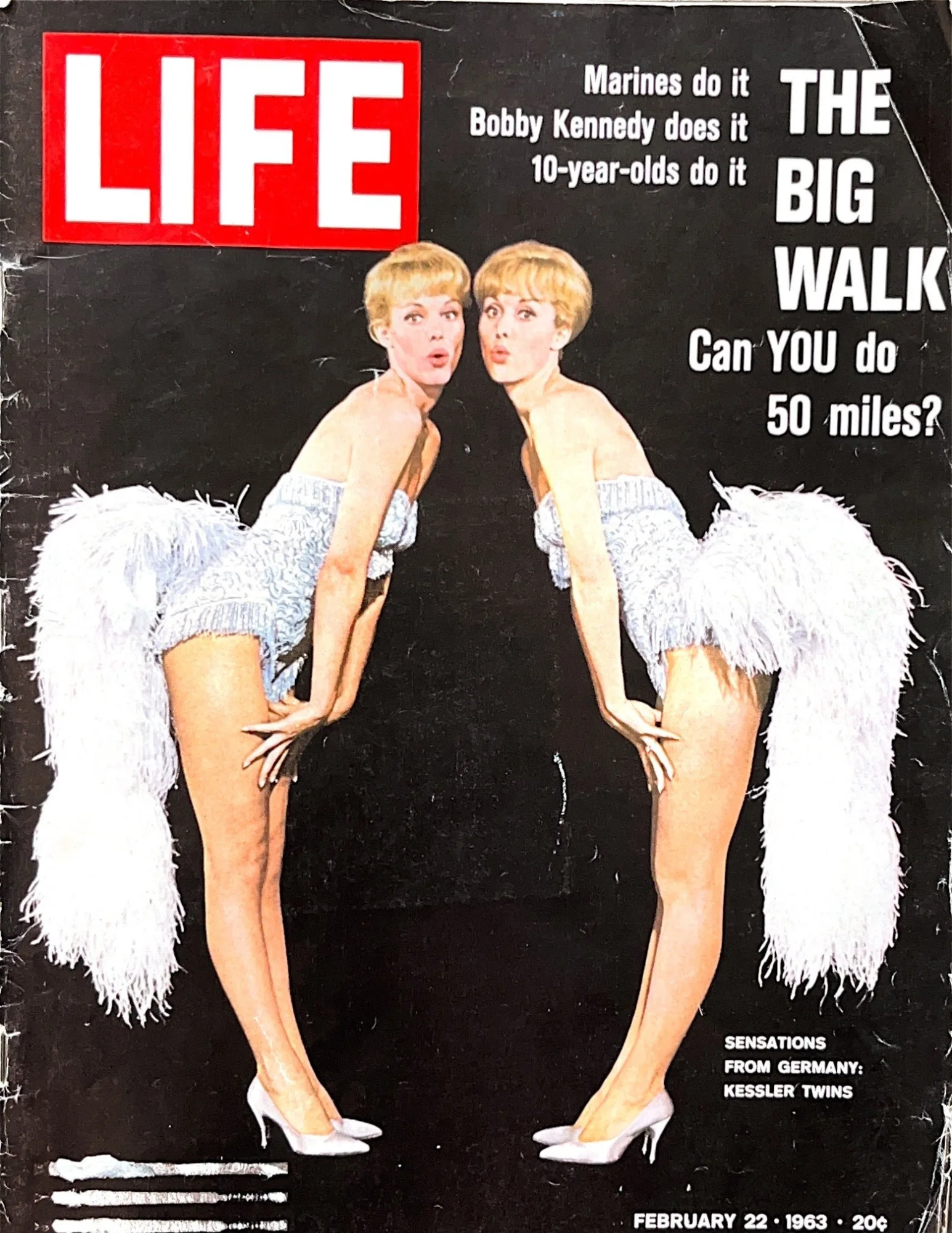In the early 1960s, when a marine commandant—David M. Shoup—presented John F. Kennedy with records of Teddy Roosevelt’s decree that all U.S. marines be required to walk fifty miles in twenty four hours, he offered the challenge to the American public as a show of patriotism. These famously coined “JFK 50-Milers,” also called Kennedy Walks or Big Walks, became a national craze—documented here in pictures from a 1963 Life Magazine article. One such walk, set in the remote Pacific Northwest community of Humtown, where everyone lives “in one another’s pockets,” is the central subject of Adrianne Harun’s beautifully crafted historical mystery On the Way to the End of the World.
Though based on historical events, Harun’s novel takes place in a fictional landscape that bears some resemblance to 1963 Port Townsend and the Olympic Peninsula. “The End of the World” refers to a cliffside spot well-known to Port Townsend locals, which Harun (a longtime resident) sets as the final destination of the novel’s fifty-mile trek. This March, the City of Port Townsend selected On the Way to the End of the World as its Community Read, spotlighting Harun’s novel with a series of public events, reading groups, and a modified version of the book’s Big Walk.


In an early chapter titled “Humtown,” Harun’s cast of 50-Milers prepare to embark on their own Big Walk, only to become entangled in a web of local stories and secrets involving a lost town treasure and a missing young wife. As Harun notes in her Reader’s Guide:
Secrets play a big part in several characters’ decisions to go on Humtown’s Kennedy Walk. Secrets also compel others to pursue the walkers. Few of these secrets fully emerge into the open, but some of the walkers seem to know them all. Other intuit without openly interrogating. Still others slowly realize that secrets they don’t know, perhaps shouldn’t know, exist, and they act to protect their fellow walkers without questioning.
“Humtown” pulses with intrigue, each resident woven into the fabric of the town’s communal voice, fueled by the gossipy telephone operator at its center, setting the stage for a gripping tale of mystery and revelation:
Yes, in a town as small as this one, miles away from another, we slip into one another’s minds, as surely as the Operator herself waits in our homes, coiled within the black cradles of our hall table telephones, listening, following along until we nearly breathe together and speak for one another, ventriloquists all, until suppositions twine and, enthralled, we pass off a story to one then another and another, until a fulsome shape emerges, until at last we can claim the terrible truth of the mischief at hand (19-20).

Read the full excerpt of “Humtown” and enjoy these pivotal pages from On the Way to the End of the World.
